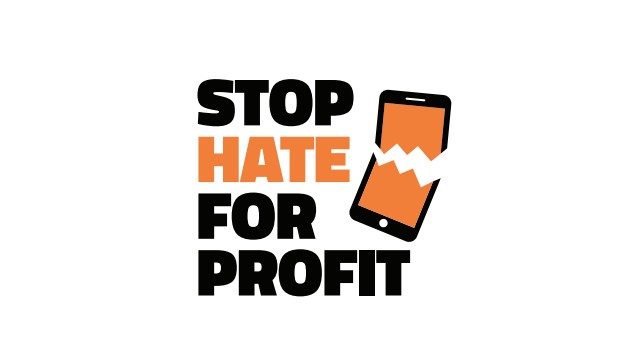SUMMARY
This is AI generated summarization, which may have errors. For context, always refer to the full article.


MANILA, Philippines – Facebook has a lot of work to do if it looks to regain the trust of its users and advertisers back.
Among other things, the social network’s CEO Mark Zuckerberg drew widespread flak in early June for how he handled posts from President Donald Trump that promoted the use of force against civil rights protesters in rallies across the US.
Zuckerberg initially defended his inaction in Trump’s controversial, “When the looting starts, the shooting starts,” post, but later announced that he and company leadership will review the platform’s content policies.
The platform has long been criticized for their lax rules and lack of transparency on what can and can’t be posted by its users.
Facebook’s response, however, was not enough for various groups, who took it upon themselves to take immediate action and hit Facebook where it hurts – their revenue streams.
What is Stop Hate For Profit?
On June 17, a number of civil rights and non-profit watchdog organizations banded together and asked businesses to pause their advertisement spending on Facebook and Instagram to pressure these platforms to address problems in their content moderation practices.
A week later, the movement gained momentum, with many big companies such as Unilever and Hershey’s joining. Other companies do not explicitly join the movement, but suspend their ads instead – some suspending campaigns on other social media platforms beyond Facebook and Instagram.
The Stop Hate For Profit condemns how Facebook allowed posts that incited violence on protesters fighting for racial justice; named publications affiliated with white nationalist groups as trusted news sources; and turned a blind eye on voter suppression, in its call for a widespread boycott.
On the site’s front page, their statement goes:
“We know what Facebook did.
They allowed incitement to violence against protesters fighting for racial justice in America in the wake of George Floyd, Breonna Taylor, Tony McDade, Ahmaud Arbery, Rayshard Brooks and so many others.
They named Breitbart News a “trusted news source” and made The Daily Caller a “fact checker” despite both publications having records of working with known white nationalists.
They turned a blind eye to blatant voter suppression on their platform.
Could they protect and support Black users? Could they call out Holocaust denial as hate? Could they help get out the vote?
They absolutely could. But they are actively choosing not to do so.
99% of Facebook’s $70 billion is made through advertising.
Who will advertisers stand with?
Let’s send Facebook a powerful message: Your profits will never be worth promoting hate, bigotry, racism, antisemitism and violence.
Please join us.”
“We are asking all businesses to stand in solidarity with our most deeply held American values of freedom, equality and justice and not advertise on Facebook’s services in July,” as stated on the campaign’s website.
Stop Hate For Profit is supported by the civil rights non-profits Color Of Change, The National Association for the Advancement of Colored People (NAACP), Anti-Defamation League (ADL), social media activists Sleeping Giants, media reform advocacy group Free Press, and Common Sense Media.
Growing support
The campaign’s call appears to have resonated with numerous companies and advertisers, with the list of those halting any social media spending growing by the day.
As of writing, major brands such as Coca-Cola, Unilever, Starbucks, The Hershey Company, and Ford, have joined over 200 other companies in the boycott, slashing an estimated $50 billion in Facebook’s market value.
The social media company recently shared that it’s banning a “wider category of hateful content” in ads and adding special tags to “newsworthy” posts that violate rules, but it’s not likely to stop the campaign from implementing their next step, which is to spread the movement worldwide.
According to Reuters, the next step for the campaign is to invite companies from Europe to join the boycott in an effort to get the region’s regulators to once again set their sights on Facebook.
The European Commission set new guidelines in June asking the likes of Facebook, Google, and Twitter to submit monthly reports on how they’re handling misinformation regarding the pandemic.
The campaign is also asking brands like Unilever and Honda to pull their Facebook ads globally and not just for the US.
Despite the boycott, some experts believe that Facebook is only taking a minor financial hit and will eventually bounce back, with around 7 million other advertisers still on the platform – most of which are small- and medium-sized businesses.
For consumers, the movement is asking users to sign a petition that demands Facebook adopt the movement’s recommendations to stop online hate and extremism, urge more businesses to pause Facebook advertising in July, and to “send the message that profits will never be worth supporting hate of any kind.”
The movement’s recommendations demand accountability, decency, and more support for users facing harassment. The list can be viewed here. They also have a list of participating businesses here.
Facebook, in spite of its problems, has not had a user exodus, with its almost all-encompassing features ingrained in people’s day-to-day.
Still, the non-profit-led movement has offered a heavy statement that has once again put Facebook front and center. – Rappler.com
Add a comment
How does this make you feel?
There are no comments yet. Add your comment to start the conversation.